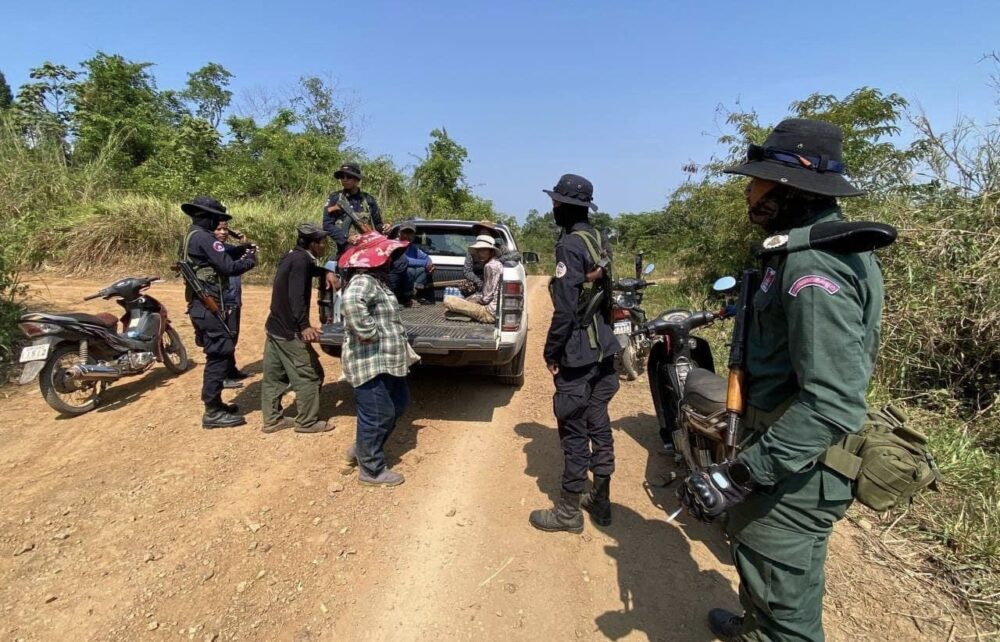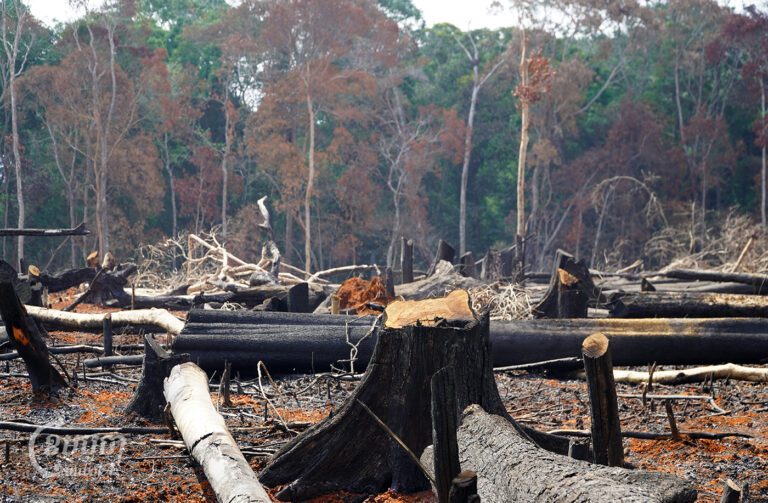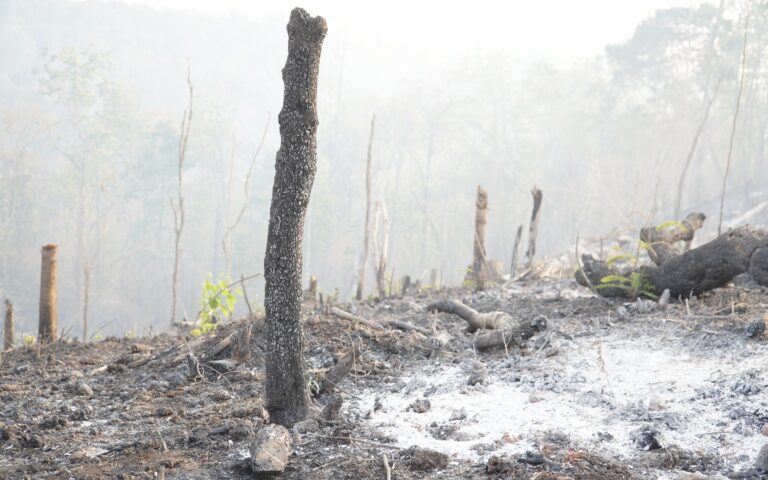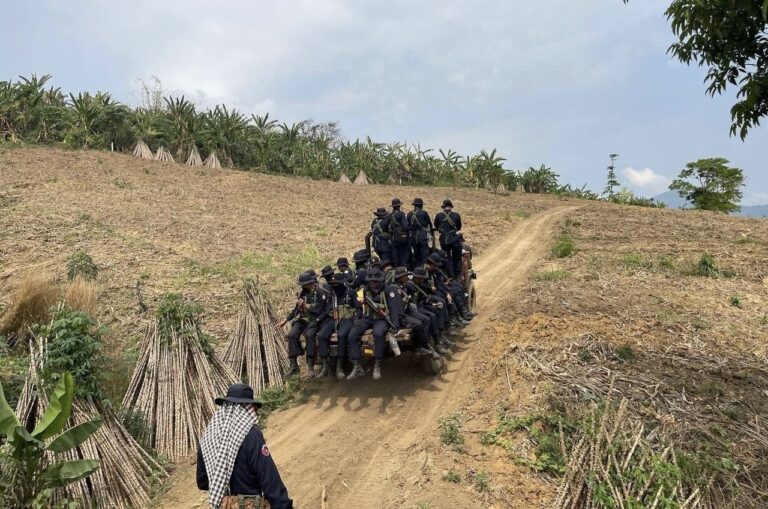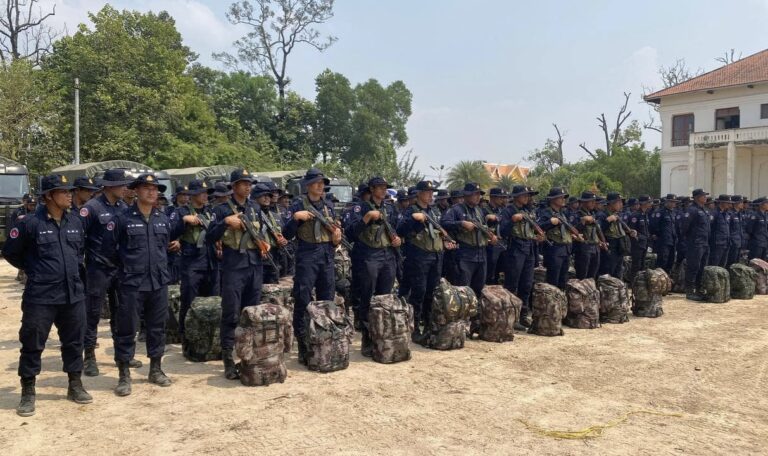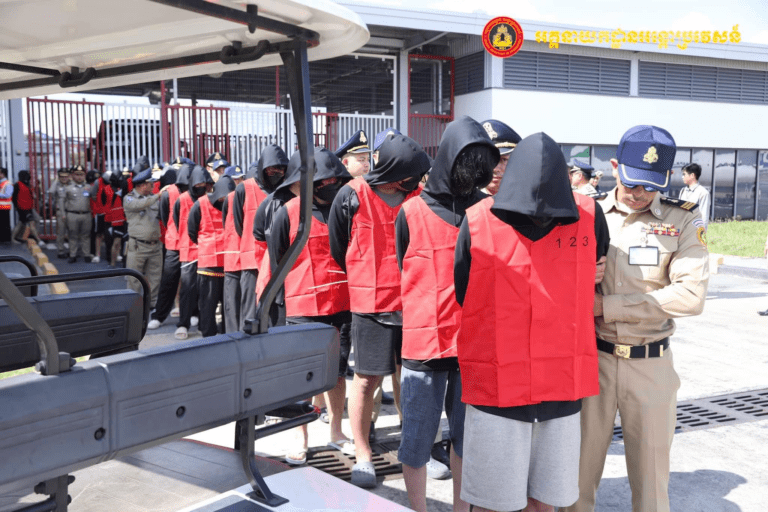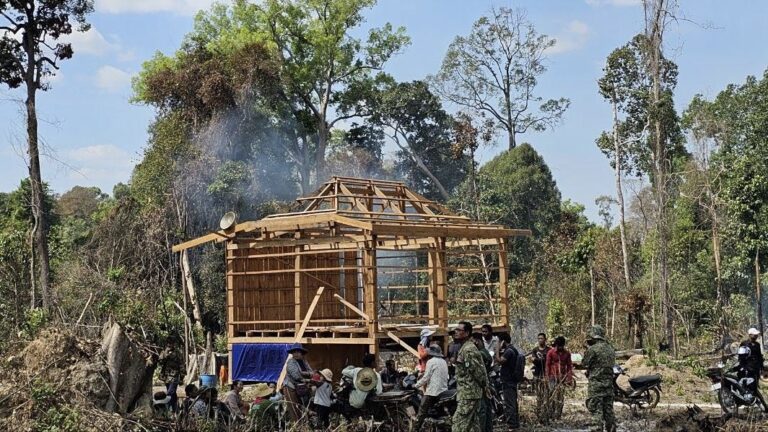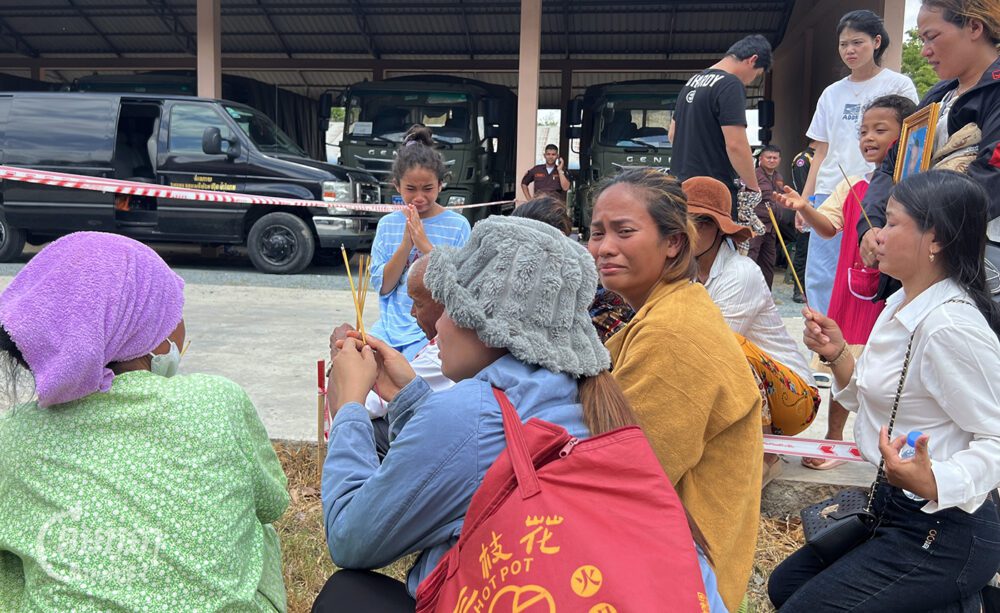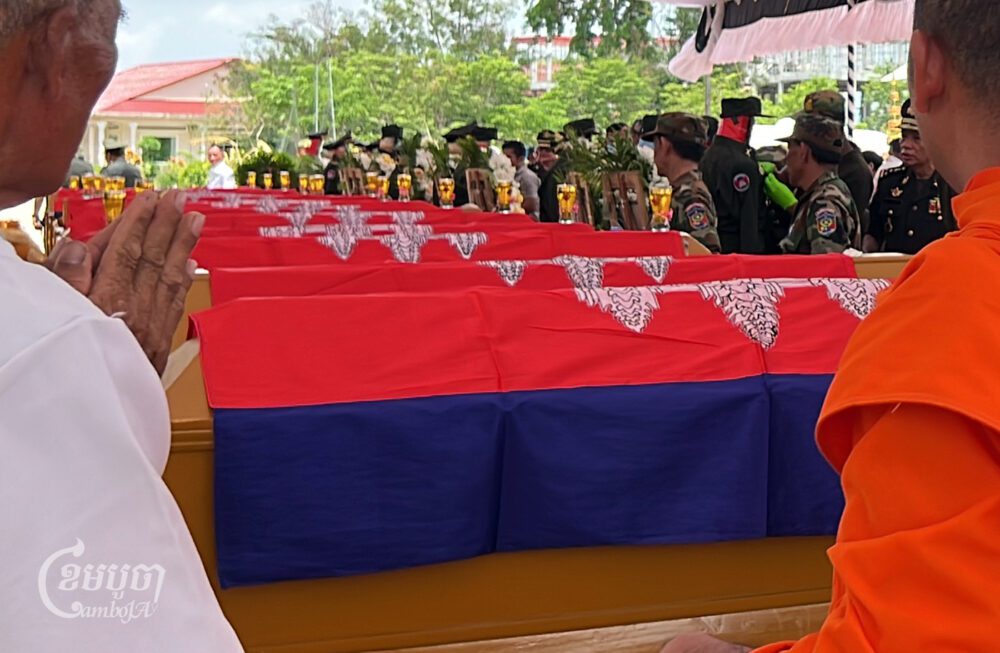A month-long government crackdown on environmental crimes in Pursat concluded this week with 18 people in pre-trial detention in provincial prison. Five additional people who have not been charged are also currently detained in the prison pending further court inquiries and proceedings.
The operation, composed of 10 teams of National Gendarmerie, National Police Force and Pursat provincial authorities, seized nearly 40,000 hectares of illegally occupied land in Phnom Kravanh and Veal Veng districts, according to Pursat provincial officials.
Pursat Provincial Governor Khoy Rida told CamboJA News that national officials will continue to be stationed in the protected areas until arrangements are made to place the areas under the jurisdiction of sub-national authorities.
“We will roll out reforestation in illegally cleared areas and return them to sub-national authorities or relevant stakeholders to control,” he said. “ As long as they are able to manage their jurisdictions, that is when we can withdraw the deployed forces.”
Those detained face charges of illegally clearing and occupying state forestland under Article 56 and Article 61 of the Law on Natural Protected Areas, a summons by Pursat provincial court states. They face five to 10 years in prison and fines ranging from 15 million to 150 million riel ($3,700 to $37,000). All evidence from the operation is able to be seized as state property, according to the law.
“We adjudicate the cases based on the law, whether they illegally or legally own the land or bought the land from previous owners. Authorities working on the case know how it goes,” Rida added.
The operation began with a meeting on March 10 between the Pursat Environment Department, the Environment Ministry and the Royal Gendarmerie to discuss preventing crimes involving natural resources in Pursat province. This followed public remarks by Prime Minister Hun Manet in December urging all relevant authorities to enforce forest and natural resource crimes.
Kheang Somuny, spokesperson for the Pursat provincial court, did not respond to requests for comment sent through Telegram.
“We will examine each case against the perpetrator to bring them to justice based on the law and thus sending them to court,” said Environment Ministry spokesperson Khvay Atiya. “For people who work as daily laborers, we only give them the advice to stop their activities and understand the law of protected areas.”
According to government-aligned media Fresh News, authorities will request that the Environment Ministry determine if the confiscated land can be granted to villagers as social land concessions, under the arrangement of village, commune and district authorities.

Pe Rany, Pursat coordinator for human rights NGO Adhoc, told CamboJA News that the NGO has not received any complaints from Pursat villagers so far.
“We will try to help people with legal support if they file grievances to us. Therefore, we will find out whether they legally own the land or not and find a lawyer to support them in court procedures,” he said. “If they really did encroach on the state land, we cannot help them. It is in the hands of the authorities.”
However, Rany urged the authorities to grant land ownership to impoverished communities in the form of social land concessions in cases where people do not own enough land to cultivate crops and sustain their livelihoods. Many Cambodians living in the provinces lack land titles granted by the national government and the government’s titling processes have failed to reach all Cambodians.
“Authorities have apprehended quite a lot of people in their operation on [charges of] illegal state land encroachment. But it is unclear how effective and fair their actions are,” he said.
“In general these people were born on the land, and thus cannot live without having the land…If people really do not have land for housing and cultivation, they [authorities] should consider providing land for them for their basic needs as human beings.”


